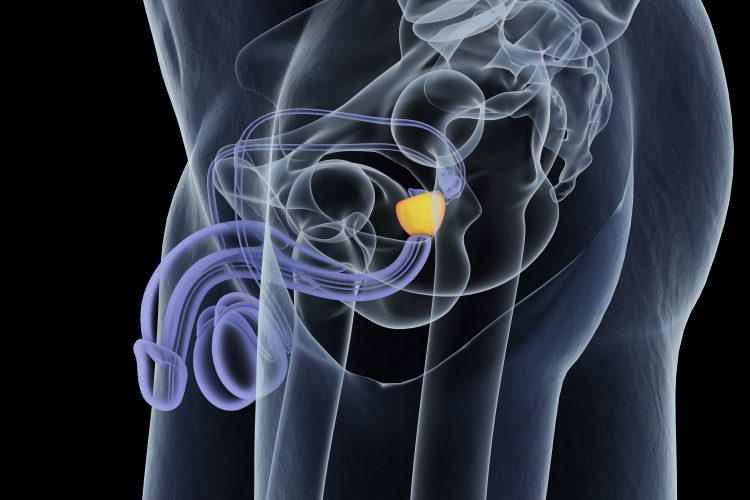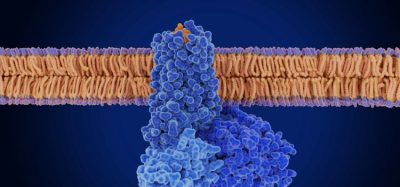FDA approves Lynparza (olaparib) for HRR mutated prostate cancer
Posted: 21 May 2020 | Hannah Balfour (European Pharmaceutical Review) | No comments yet
Lynparza’s approval was based on results from a Phase III clinical trial in which it improved overall survival and progression-free survival in patients with certain prostate cancers.


AstraZeneca and MSD Inc. have announced that Lynparza (olaparib) has been approved by the US Food and Drug Administration (FDA) for use in US patients with homologous recombination repair (HRR) gene-mutated metastatic castration-resistant prostate cancer (mCRPC).
Lynparza was approved based on results from the Phase III PROfound trial. The drug is a PARP inhibitor, which prevents the DNA damage response in tumours harbouring a deficiency in HRR. HRR genes in normal cells promote accurate DNA damage repair; however, in cancer cells with HRR mutations, these genes promote abnormal cell growth and cancer. HRR gene mutations, such as BRCA1, BRCA2 or ATM alterations, occur in approximately 20 to 30 percent of patients with mCRPC.
Dave Fredrickson, Executive Vice President, Oncology Business Unit, AstraZeneca said: “Today marks the first approval for Lynparza in prostate cancer. In the PROfound trial, Lynparza more than doubled the median radiographic progression-free survival and is the only PARP inhibitor to improve overall survival, versus enzalutamide or abiraterone for men with BRCA or ATM mutations. These results further establish that genomic testing for HRR mutations should be a critical step for the diagnosis and determination of treatment options for men with advanced prostate cancer.”
Dr Roy Baynes, Senior Vice President and Head of Global Clinical Development, Chief Medical Officer, MSD Research Laboratories, said, “Lynparza is the only PARP inhibitor approved with Phase III data for men with HRR gene-mutated metastatic castration-resistant prostate cancer. This approval highlights the importance of genomic testing to help identify treatment options for men in this patient population. We are proud to work in collaboration with AstraZeneca toward our overall goal of improving outcomes for patients.”
Results of PROfound
PROfound is a prospective, multicentre, randomised, open-label, Phase III trial testing the efficacy and safety of Lynparza versus enzalutamide or abiraterone in patients with mCRPC who have progressed on prior treatment with enzalutamide or abiraterone and have a qualifying tumour mutation in BRCA1/2, ATM or one of 12 other genes involved in the HRR pathway.
The trial had two cohorts, if it met the primary endpoint of improving radiographic progression-free survival (rPFS) in those with mutations in BRCA1/2 or ATM genes then, if Lynparza showed clinical benefit, analysis of the overall trial population of patients with HRR mutated genes (BRCA1/2, ATM, CDK12 and 11 other genes).
The trial data showed that Lynparza reduced the risk of disease progression or death in patients with BRCA1/2 or ATM gene mutations by 66 percent. The drug met the primary endpoint of improved rPFS, which was increased to a median of 7.4 months versus 3.6 months with enzalutamide or abiraterone.
Lynparza also met the secondary endpoint of improving rPFS in the overall HRR population, producing a median of 5.8 months versus 3.5 months with enzalutamide or abiraterone, and reduced the risk of disease progression or death by 51 percent.
The results also increased overall survival of patients with BRCA1/2 or ATM mutations to a median of 19 months versus 14.6 months with enzalutamide or abiraterone.
The full indication is for the treatment of adult patients with deleterious or suspected deleterious germline or somatic HRR gene-mutated mCRPC who have progressed following prior treatment with enzalutamide or abiraterone. Patients are to be selected for treatment based on an FDA-approved companion diagnostic test for Lynparza.
Lynparza is currently under regulatory review in the EU and other jurisdictions as a treatment for men with HRR gene-mutated mCRPC.
Related topics
Anti-Cancer Therapeutics, Clinical Trials, Research & Development (R&D)









